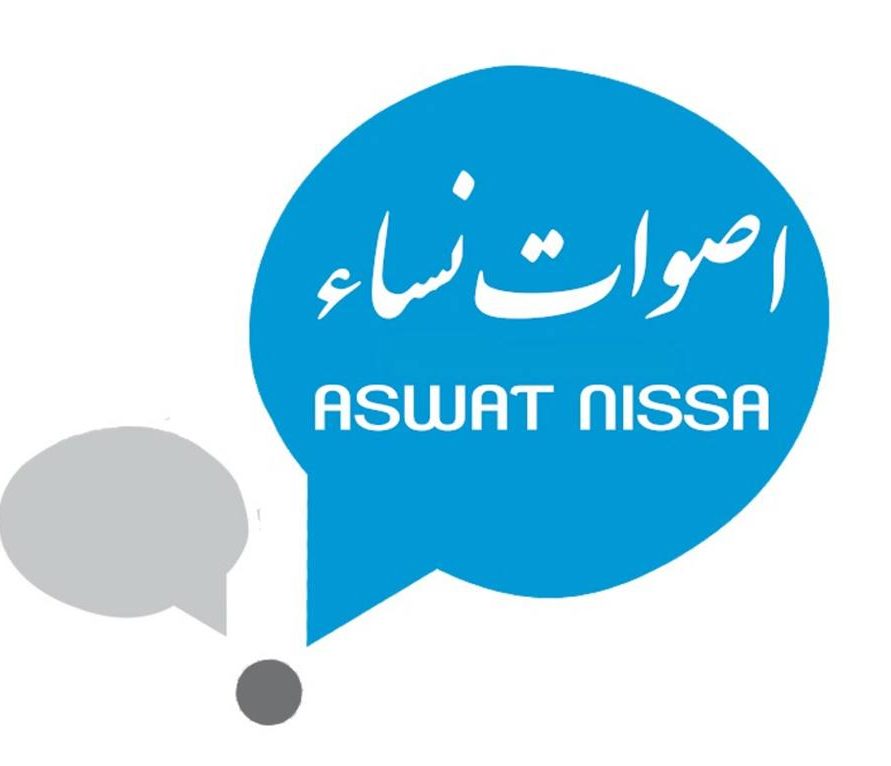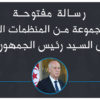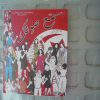Tunisian Women at the Forefront of the Fight Against Corruption!

In May of 2017, more than six years after the Revolution, and after Tunisia had been ranked 75th on corruption perception in a study by Transparency International, the Head of government of the Second Republic, Youssef Chahed, declared war on corruption. This announcement had been eagerly awaited by the Tunisian people, and mostly, by members of the civil society (as watchdogs of the revolution).
In this fight against corruption instigated by civil society and by some Tunisian politicians, we also find many dynamic and motivated women.
 Henda Fellah d’I Watch: “I have never been a victim of corruption, so what I do isn’t to serve my own interests, but the country’s interests.”
Henda Fellah d’I Watch: “I have never been a victim of corruption, so what I do isn’t to serve my own interests, but the country’s interests.”
One of the most renowned faces of I Watch is surely that of Henda Fellah. Indeed, at only 29 years old, this young woman is coordinator of the “Legal Advocacy Advisory Center” project in Tunisia. These centers exist in over 60 countries around the world and provide free and confidential legal services to witnesses and victims of corruption. Within this structure, Henda Fellah and her team of legal experts process all types of corruption files.
From a young age, this woman was passionate about politics but refused to choose a particular ideology to follow. Accordingly, she turned towards the civil society to improve the country. She started her experience with “I Watch” as member of the “Election and Corruption” group. “I wanted to be surrounded by young people, people my age who progress together.”
Even though she has never herself been victim of corruption, Henda feels invested of the mission to curb corruption in Tunisia. “I have never been a victim of corruption, so what I do isn’t to serve my own interest, but the country’s interests.”
Her activism within this organization wasn’t perceived well by the people close to her, mostly her mother, who worried for her. Her mother’s fear was retriggered after the Nabil Karoui affair who planned to launch a defamation campaign against “I watch” and its members (according to a vocal recording). “My mother told me that they were boys and I was a girl, so I couldn’t stay out late since they would follow me”. This advice didn’t damper this militant’s tenacity and courage.
According to Henda Fellah, her courage stems from her colleagues at I Watch.
During the latest protests against corruption, many women took the streets. For Henda, this female participation brings a level of seriousness, credibility and security to the protests. Many political women and men joined the fight against corruption, such as Samia Abbou.
 Samia Abbou : « I want citizens to be involved in the fight against corruption. I want them to be involved with us.”
Samia Abbou : « I want citizens to be involved in the fight against corruption. I want them to be involved with us.”
One of the most involved politician in the fight against corruption is Samia Abbou. For this MPfrom Democratic Current, known for her fervent interventions in the media and in Parliament, it is more than time to stem this social evil that threatens the nation’s future.
She states that “if we want to save the country, we must start by fighting corruption since it is everywhere, in every sector: in our administration, in our documents, in our electricity, in our schools…”
Samia Abbou doesn’t shy away from accusing the government, certain MPs, and business men and women from being involved in shady business. For her, the Tunisian people must understand what is happening. “If the citizens realized what these people do and if the media were honest on their corruption coverage, they would revolt against these people.” The MP is determined to make her voice and her message heard, regardless of the price. She declares that “I don’t want my children, or anybody’s children, to live what we have lived”.
Many citizens identify themselves with Samia Abbou. She gives them courage and breaks the stereotype of the female politician with a limited field of work. “I want my co-citizens to be involved with me in this fight.”
Since the announcement of the law proposal on economic reconciliation, and especially with the “Manich Msamah” campaign, the Tunisians’ involvement in the fight against corruption greatly increased. This movement restored Samia Abbou’s “hope in the country” and showed how the people “understood that the country was founded on a corrupt system”.
 Imen Ben Ghozzi of the Manich Msamah campaign : « As soon as I opened my eyes in this country, my problem was corruption »
Imen Ben Ghozzi of the Manich Msamah campaign : « As soon as I opened my eyes in this country, my problem was corruption »
Within the collective behind the “Manich Msamah” campaign, there is Imen Ben Ghozzi for whom the fight against impunity and corruption started well before her involvement in this social movement. In fact, following the 2011 Revolution, the young woman stormed the street to denounce the injustice suffered by the January 14th victims. This involvement led her to participate in the launch of the Manich Msamah campaign. She explains that « as soon as I opened my eyes in this country, my problem was corruption ». Imen’s activism forced her to make many sacrifices. Tensions arose within her couple because her husband was angry against her for devoting so much time to the cause. However, the young activist couldn’t conceive living without leading a determined fight against corruption. “I can’t live differently. If my life was devoted solely to my family and my work, I think I would be depressed. Sometimes, I feel as though it’s the oxygen I breathe. To avoid falling into depression, I must feel I am doing something that will improve my children’s life.”
The future generation is therefore this young woman’s source of motivation. “My parents didn’t advocate enough. I feel as though I can make a real change for my children’s future.” For her, fighting against corruption is an obligation because “as long as there is corruption, nothing will evolve in the country”. Through her commitment in the campaign, Imen also wants to encourage other Tunisians to come on board. “My fight against corruption doesn’t limit itself to protests, but extends to my family, my work administration, my neighbors and my grocer.” She wishes to make them realize the magnitude of corruption and the danger it represents for the country.



